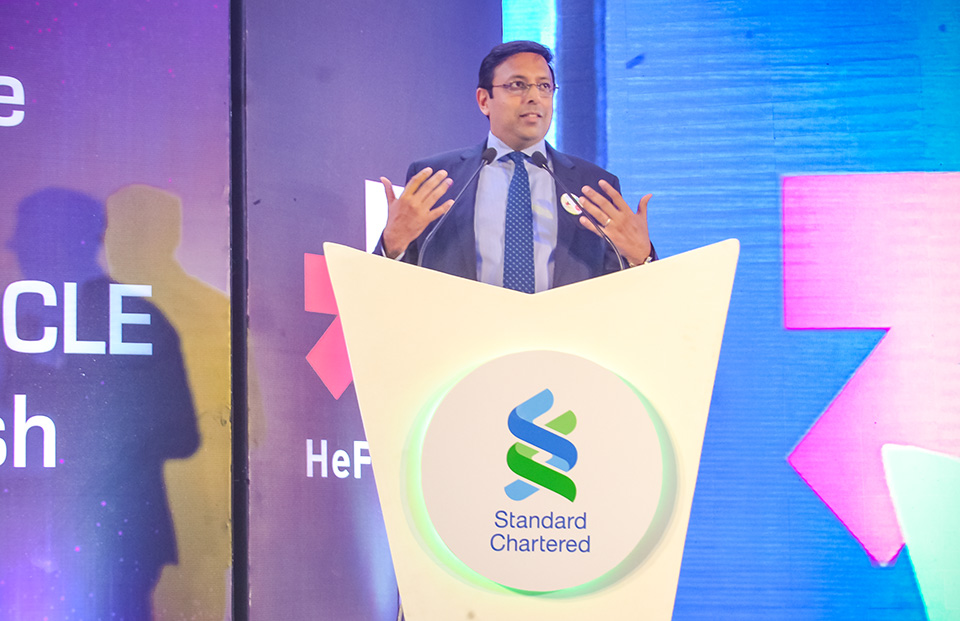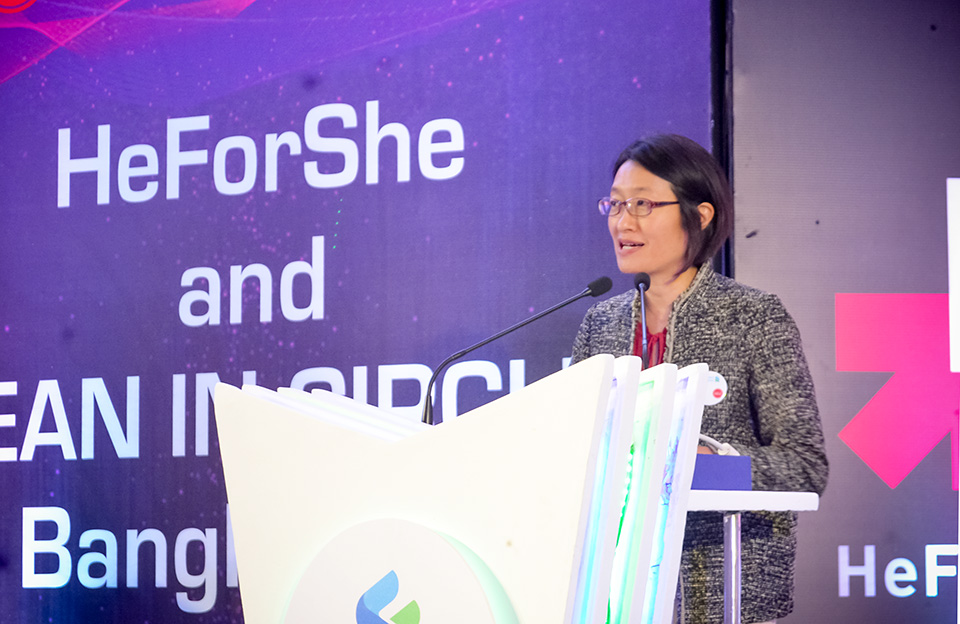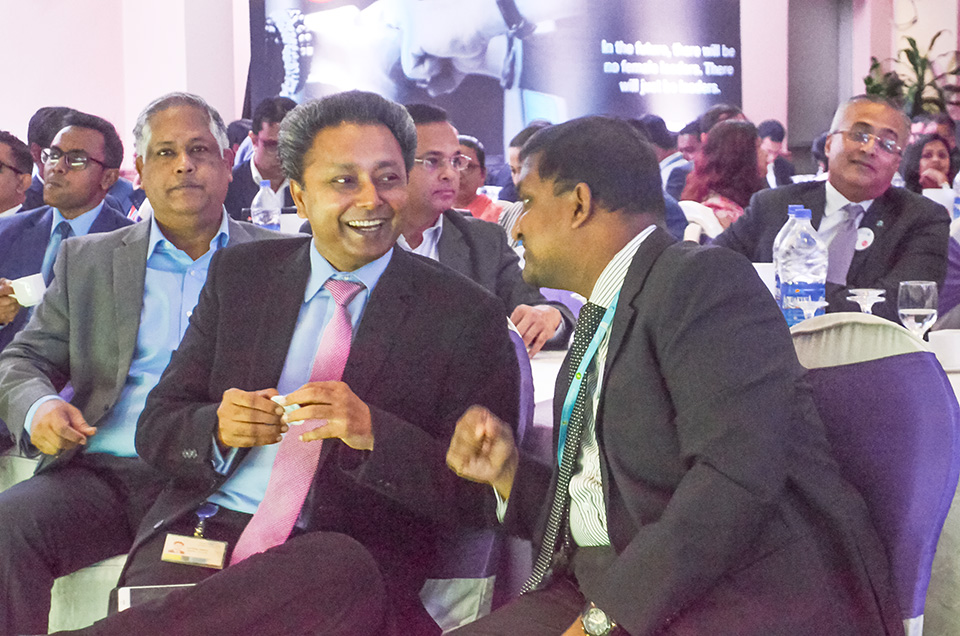‘Equality means business’ in Bangladesh
Date:
Author: Syeda Samara Mortada

Dhaka, Bangladesh — Inspired by the Women’s Empowerment Principles of UN Women and United Nations Global Compact, more companies operating in Bangladesh – including multinationals Unilever and Standard Charter Bank – have pledged to improve conditions and opportunities for female employees.
“I commit to create an inclusive environment and level playing field for all, where everyone can bring their real self to work and thrive”
On 9 March, International Women’s Day, UN Women and consumer goods giant Unilever in Bangladesh jointly organized a series of events called Balance for Better that brought together private businesses, youths and academics to start talking about gender equality. CEOs of companies pledged to work on gender equality, youth leaders spoke about their journeys and aspirations, and mid-management staff members of companies discussed how they can incorporate gender equality into their plans for diversity and inclusion.
Since that event, companies have committed to join the gender equality campaign by signing up as HeForShe advocates. UN Women’s HeForShe initiative calls on men and boys to take action on gender equality.
On 10 July, Standard Charter Bank (SCB) in Bangladesh launched the HeForShe initiative for its staff at an event attended by more than 200 people, including line managers and more senior executives.

“Businesses thrive when women thrive at work. Equality means business,” Shoko Ishikawa, Country Representative of UN Women, declared at the launch.
Osman Ershad Faiz, Chief Operating Officer of SCB Singapore, spoke about the different ways in which the bank was supporting female workers: introducing flexible hours; allowing them to work from home; setting up a “Lean in” Circle; and joining the HeForShe initiative. Similar steps will be taken at the Bangladesh operation.
Osman also spoke about how personal prejudices affect how we treat people, both at work and outside. “Do you unconsciously make a decision to treat your son and daughter differently? If you do, then that’s the start of the issue,” Osman said.
Naser Ezaz Bijoy, the bank’s CEO in Bangladesh, said: “I pledge to have two female staff in the Country Management Team, and they will be part of the team not because they are women, but because they are talented. And I aim to have an overall 30 per cent of female staff.”

At the event, SCB staff members discussed how to practically deal with issues like maternity leave for women who are climbing the career ladder while having to be hands-on at home as well. Everyone participating in the discussion made a personal commitment to promote gender equality.
“I commit to create an inclusive environment and level playing field for all, where everyone can bring their real self to work and thrive,” said Khairun N. Haque, Country Head of Human Resources.
“I commit to promote an environment where diversity of thought is welcomed and embraced,” said Sabbir Ahmed, Head of Retail Banking.
“I am going to ensure gender balance in all senior meetings and forums. I am going to encourage everyone, irrespective of gender and age, to participate in meetings and speak out when they notice any unconscious bias,” said Muhammad Enamul Huque, Head of Global Banking.
The bank plans to do a follow-up in six months to see how much these pledges have been implemented.